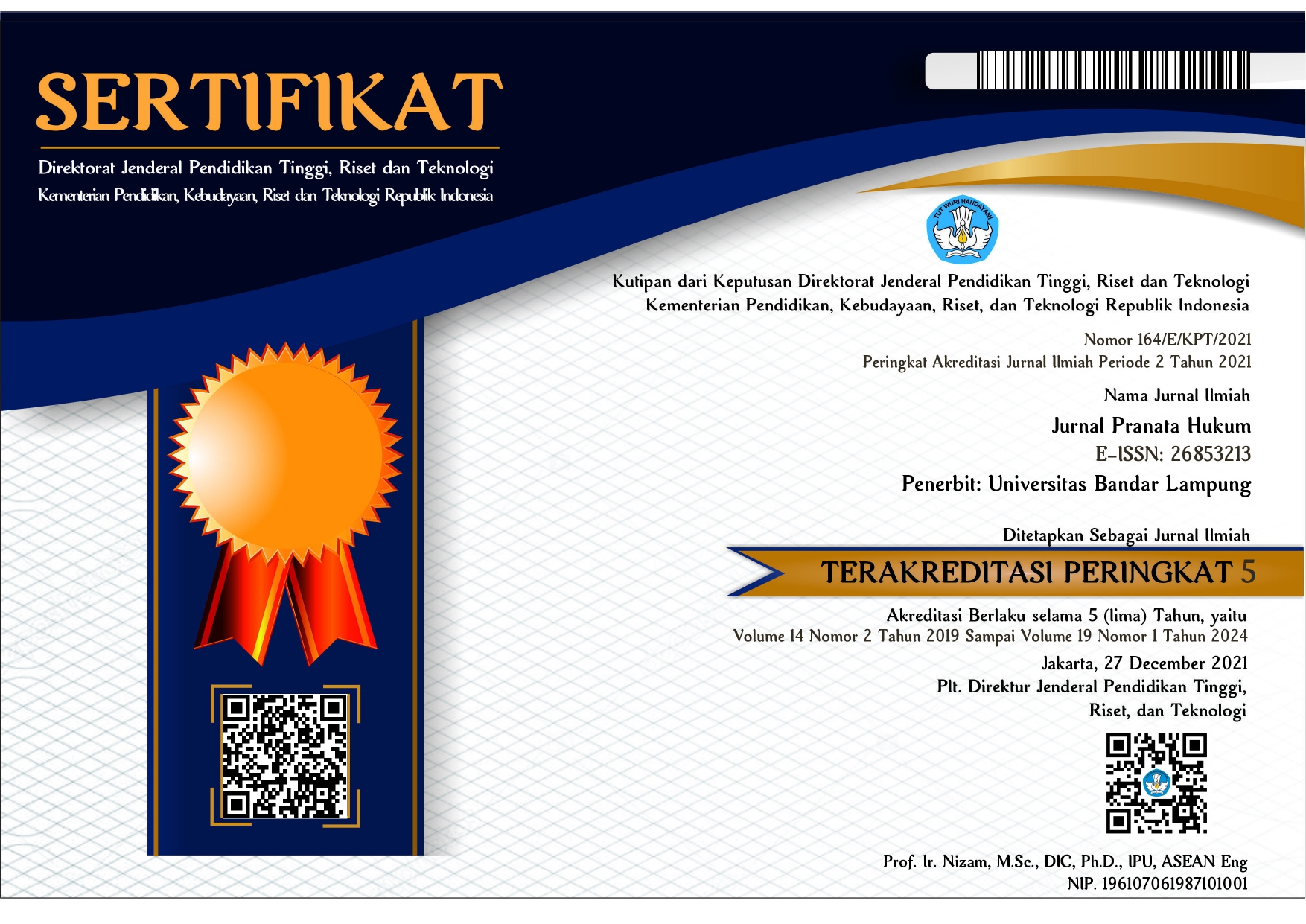Implementasi Nilai Pancasila Terhadap Hukuman Mati Tindak Pidana Narkotika
DOI:
https://doi.org/10.36448/pranatahukum.v13i2.169Keywords:
Narcotics Crime; Death Penalty; Pancasila.Abstract
The proliferation of drug trafficking and use activities in Indonesia today, makes Indonesia a drug emergency. Narcotics is an extraordinary crime and needs special attention in its eradication efforts. Therefore great power is needed by using the toughest legal actions in which Indonesia has a death sentence. The purpose of capital punishment is to give a violent deterrent to drug offenders and as a warning to other communities not to commit these crimes. The issue examined in this paper is the suitability of Pancasila as the legal basis for the application of the death penalty, and the application of the death penalty to narcotics crime. The reality of capital punishment in Indonesia shows that the implementation of the judicial system is not good and the execution of the death penalty is always postponed so that it seems indecisive . In addition, the regulation of capital punishment also raises the debate between the ethical values of Pancasila and positive law (KUHP). It is undeniable that in the effort to implement such assertiveness sometimes experience obstacles both from within and outside the country. As well as various counter opinions regarding capital punishment that violate human rights . Even in Indonesia alone for those who contradict the death penalty, it is associated with violating the first precepts of Pancasila, where God is the ruler of the universe who has full provisions for the right to life and death. But Indonesia still applies the death penalty based on the positive law (KUHP).
Downloads
Downloads
Published
Issue
Section
License
All articles published in the Pranata Journal are licensed under the Creative Commons Attribution-ShareAlike 4.0 International License (CC BY-SA 4.0). This license allows others to share, copy, distribute, adapt, and build upon the work, even for commercial purposes, as long as appropriate credit is given and derivative works are licensed under the same terms.




